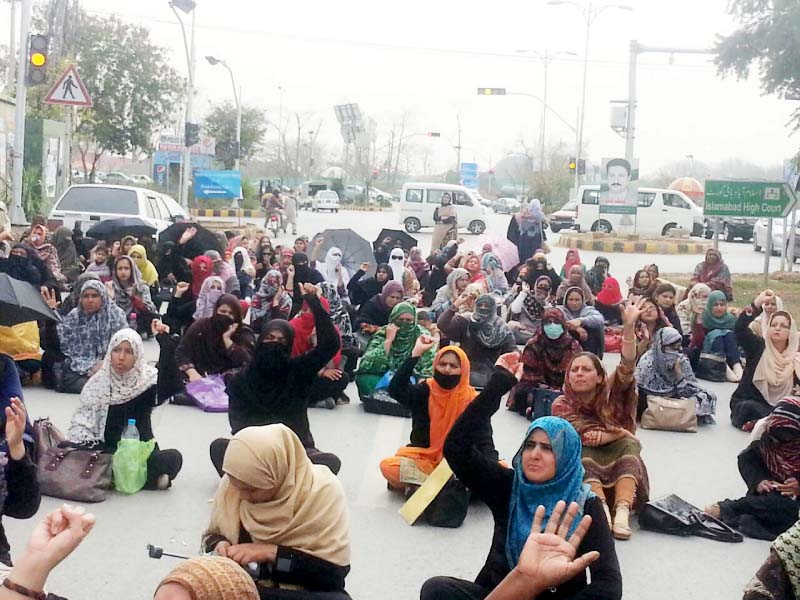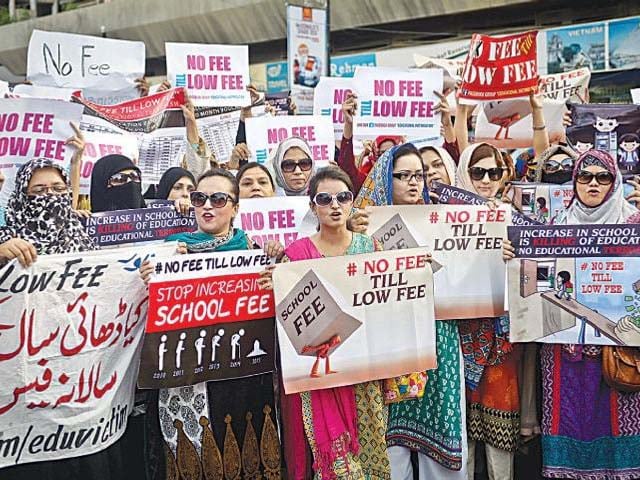
Unless Pakistani producers look up new script-writers, our drama industry has hit a dead-end!
Over half of the themes openly insult the intelligence of educated Pakistani viewership who wait to be entertained.
It would be an understatement to say that the Pakistani drama industry has grown leaps and bounds in the past two decades. It now exerts a magnetic pull on viewership that extends far beyond the borders of Pakistan.
Considering that our dramas have attained a level from which they can induce motivation for positive social change and raise awareness, the next big step would be to bring in themes that create such avenues of thought. Also, because the industry has a tremendous expat viewership on its roster, issues faced by overseas Pakistanis should be highlighted. Unfortunately, in terms of themes, most of our production houses are still revving and spinning their wheels.
Though fabulously produced and directed, the majority of the storylines are still stuck in the quagmire of home, family, and domestic and marriage politics. The most common themes continue to be the ever popular love triangles of wife-husband-mistress who is either the wife’s or the husband’s former love. Add to this a mother, father, or someone else as the prime antagonist and voila! You have a full 25-episode drama. A death or two or a terminal illness is often added for greater theatrical effect.
No offence to producers, but over half of the serial themes openly insult the intelligence of educated and smart Pakistani viewership who sit to be entertained, rather than watch rehashes of stories that every channel is running in its primetime drama slots. Drama writers seem to choose a theme based on ratings and then follow it with similar themes. Even though Bilqees Kaur followed later by Jackson Heights were based in the US, it could have highlighted the many real problems faced by Pakistanis living abroad. Yet it reverted to issues more common to Pakistanis in Pakistan than the US.
Whenever a group of fed-up viewers in or outside Pakistan sit together, nearly all of them have stories that can be adapted into far better dramas that would actually inspire people to think and evaluate their identity as Pakistanis. These people also have better solutions to issues related to relationships. So why aren’t these ideas being portrayed on screen?
I decided to get a group of good writers together and ask them why they don’t send in their writings for possible drama adaptations.
“I can easily write a script with only a little bit of guidance from a drama script writer,” said Samreen. “But there is absolutely no website that could guide us about the format for script writing.”
“I actually have three dramas all ready to be reviewed,” said Ahmed. “But who is going to review them? Pakistani drama people are absolutely out of reach to an aspiring writer.”
“But I’ve seen so many awesome websites online for production houses,” I told him. “Why don’t you contact them through their websites?”
Ahmed laughed and said,
“I’ve tried them all. They just have fabulous websites but no one ever replies to your questions. Their contact information is just a dead end.”
“They only use their tried and tested, run of the mill writers all the time,” Naima told me. “The new ones are probably the ones who have been personally referred by someone.”
“I did some research online and found hundreds of aspiring writers willing to submit their dramas for review,” said Samreen. “But they’re all running into the same dead end.”
“But not all writers are good ones,” I pointed out.
“I know,” Ahmed replied. “But at least their stories should be reviewed. There is no system for panning out gold flakes from the sand.”
“Exactly my point,” said Sameena. “Producers should at least provide a portal that allows writers to send in their work for review.”
“I think there should also be blogs that advise new writers on how to approach directors and producers with their work,” said Tahira. “Otherwise, our drama industry might die like our movie industry back in the 70s, due to lack of ideas.”
“The most aggravating part is that although there are emails and contact information available on production house websites, no one ever responds to you,” said Naima. “Someone should at least respond with a yes or a no.”
“It could be because they are getting so many queries that they can’t respond to all,” I suggested.
Naima laughed and said,
“That is ludicrous. It is so unethical and unprofessional to have a contact number that never responds. If you’re running such a grand production house, you need to at least go through the queries and see if there is something that is good enough to pursue.”
“Exactly,” Ahmed agreed. “This is why Pakistan has such a bad name in business. It has no business ethics. If you don’t like a writer’s idea, just say no. These are just deaf and dumb websites.”
The discussion went on for another hour or so. It mostly consisted of writers sharing story ideas and how an influential and captivating medium as the drama in Pakistan can be used to bring about social change, rather than the common ‘do bad and get punished’ and ‘do good and get rewarded’ storylines most of them follow. Kaisay Huay Benaam is a similar concept to Jannat Se Nikali Hui Aurat. The ‘kicked out of the house woman’ concept was also seen in Meri Zaat Zarra-e-Benishan.
Also the sleazy love triangle pulling in the sister of the wife also spread like rage on writers. It more or less started with Singhaar and then continued with Maat, Yahan Pyar Nahi Hai, and Madiha Maliha.
Pakistani dramas are now at a stage where they can educate the masses, yet the only education most of them provide is on how the upper two per cent of the population lives, dresses, eats, and socialises.
According to the writers in the group, such spectacular exhibition of wealthy lifestyle is actually creating severe fissures between social classes whereby entirely obliterating chances of inspiring any positive change. The group also agreed that the depiction of grandiose lifestyles of on-screen characters needs to be watered down; it is creating extreme pessimism and defeatism in the general viewership majority of which is unable to achieve even one-tenth of the lifestyles they see on screen. The prime focus should be themes that the general viewership can relate to such as Rehaai and Kanker.
The husband/wife affair theme remains an evergreen favourite like in Ijazat, Doraha, and Na Kaho Tum Mere Nahin. It seems to share the stage with the evil mother-in-law theme seen in Humsafar, Bilquees Kaur and Ek Tamanna Lahasil Si.
“Give our message to the producers that they need to start considering new writers,” Sameena said as we were rounding up the meeting.
I laughed and said,
“I don’t have access to producers. They are as alien to me as they are to you.”
After the conclusion of the meeting, I did a little research of my own along the same lines as these writers had. I also sent emails to five or seven of the larger production houses through their website contact forms. Unfortunately, I ran into the same dead ends with not even a single response from any one. I found several writers groups that were asking each other the same basic question in their threads of conversations – how do we write a script and how do we get in touch with producers.
Interestingly, the only help that could be considered any real help was from Umaira Ahmed who was at least gracious enough to offer suggestions to writers on how to join classes for script writing. But again, not everyone has access to the area where these are offered. She also provided a list of contacts at a few production houses for forwarding drama stories. Although the list was a few years old, I still took the lead and sent mails to all of them.
Not a single person responded.
And yes, I know that person is still working there because I cross-checked with their LinkedIn profiles. So the bottom line is, drama script writing is a dead end in Pakistan.
Here I would like to quote Bina Shah’s article on the miraculous resurgence of Pakistani cinema. Her words echo very clearly the gist of my discussion with the aspiring drama writer’s group:
“Gloria Steinem has said that ‘every social justice movement that I know of’ started with people ‘telling their life stories’. By this formulation, Pakistani cinema’s new wave hints at a country on the cusp of a major shift. Each film is at once a window into a dynamic country going through difficult times, and a blueprint for how its people might find their way to better days ahead.”
By this formula, our dramas too need to reflect the stories that live inside a Pakistani, whether he or she is within the country or abroad, rather than project them in a dreamland that neither they nor their next generations can ever achieve.




COMMENTS (21)
Comments are moderated and generally will be posted if they are on-topic and not abusive.
For more information, please see our Comments FAQ